National Language — Italy
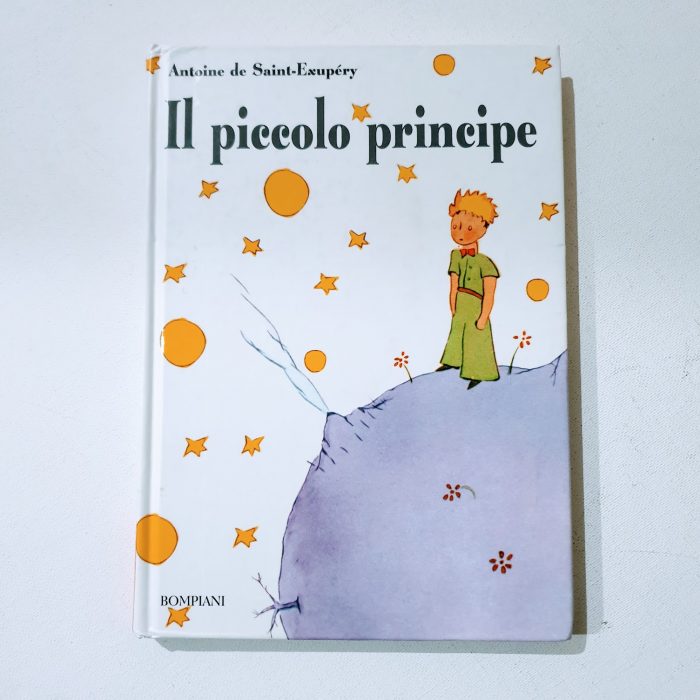
Il Piccolo Principe — in Italian.
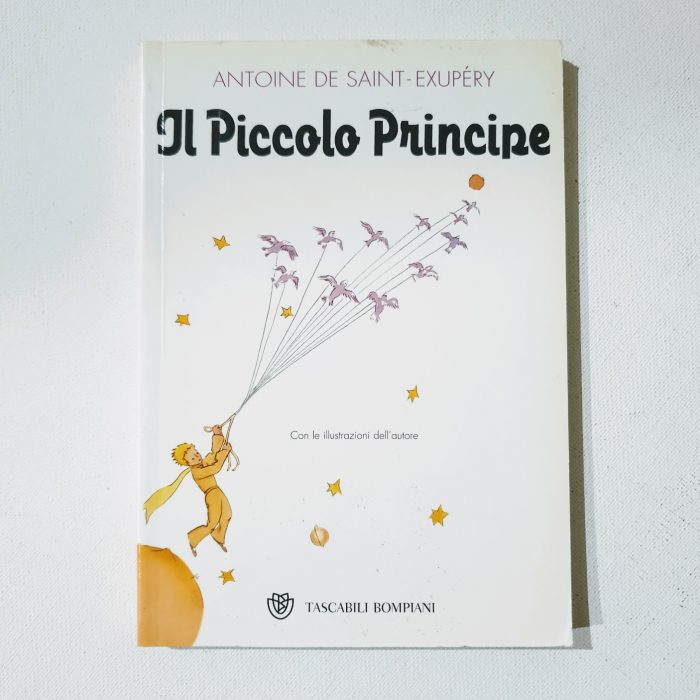
Il Piccolo Principe — also in Italian.
Regional — Gallo-Rhaetian
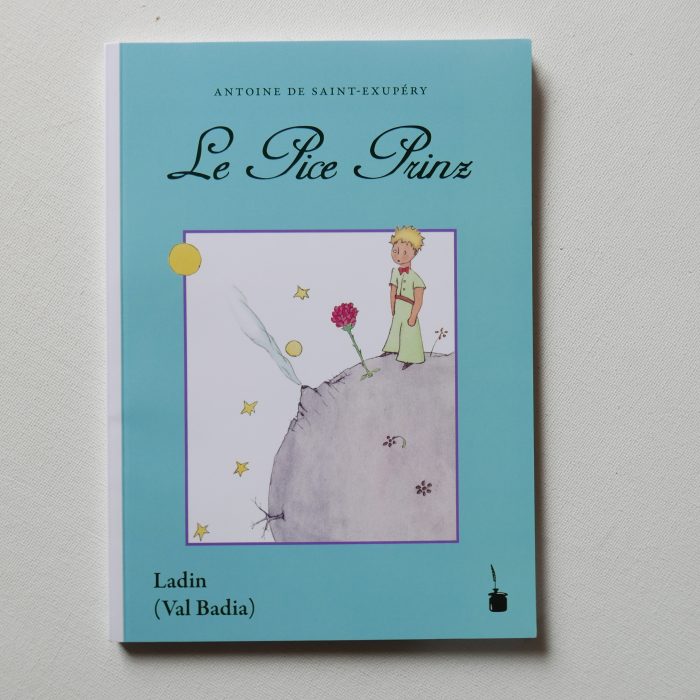
Le Pice Prinz — in Ladin, is a Romance language consisting of a group of dialects that some consider part of a unitary Rhaeto-Romance language, mainly spoken in the Dolomite Mountains in Northern Italy in the provinces of South Tyrol, the Trentino, and the Belluno, by the Ladin people. It exhibits similarities to Swiss Romansh and Friulian.
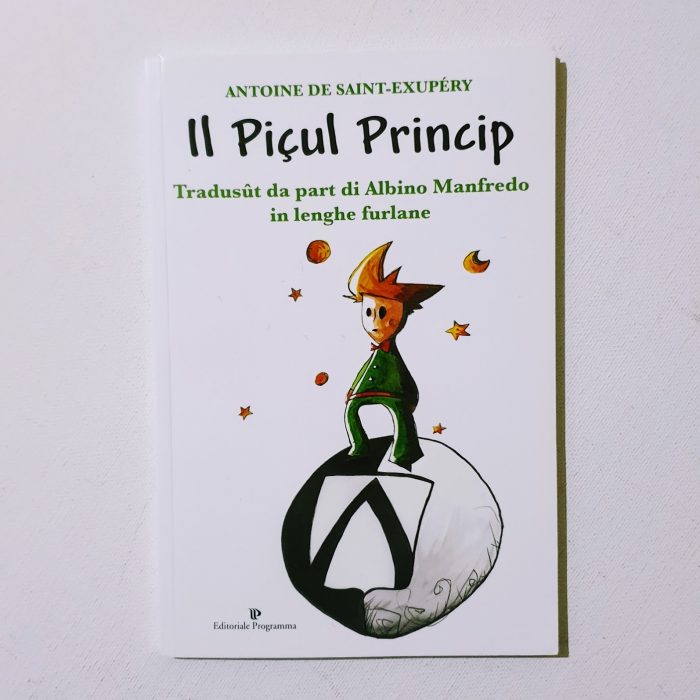
Il Piçul Princip — in Friulian, a Romance language belonging to the Rhaeto-Romance family, spoken in the Friuli region of northeastern Italy.
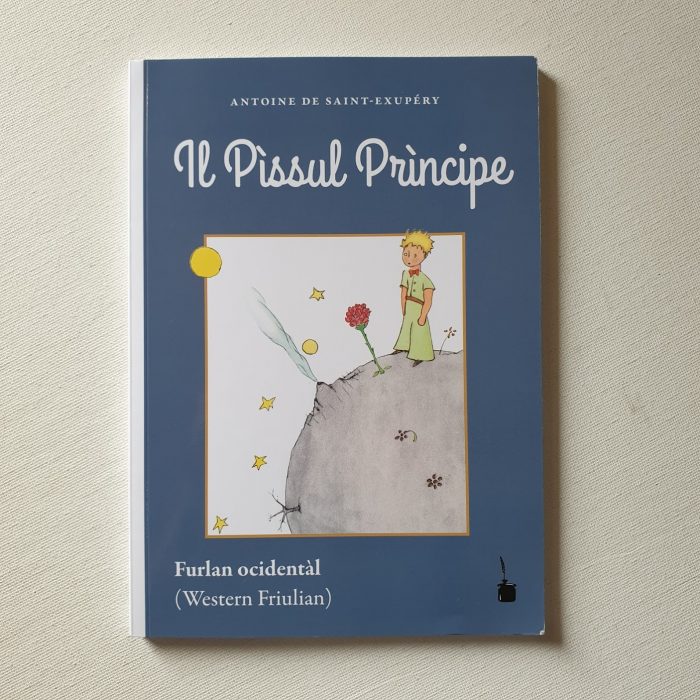
Il Pìssul Prìncipe — in Western dialect of Friulian language.
Regional — Gallo-Italic
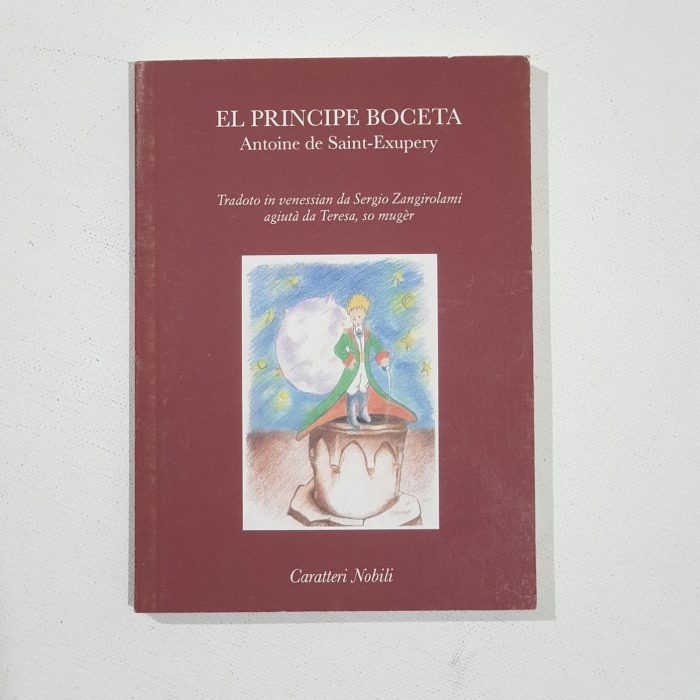
El Principe Boceta — in venetian / venetan / łéngoa vèneta / vèneto, which is a Romance language spoken as a native language by almost four million people in the northeast of Italy, mostly in the Veneto region of Italy, where most of the five million inhabitants can understand it, centered in and around Venice, which carries the prestige dialect.
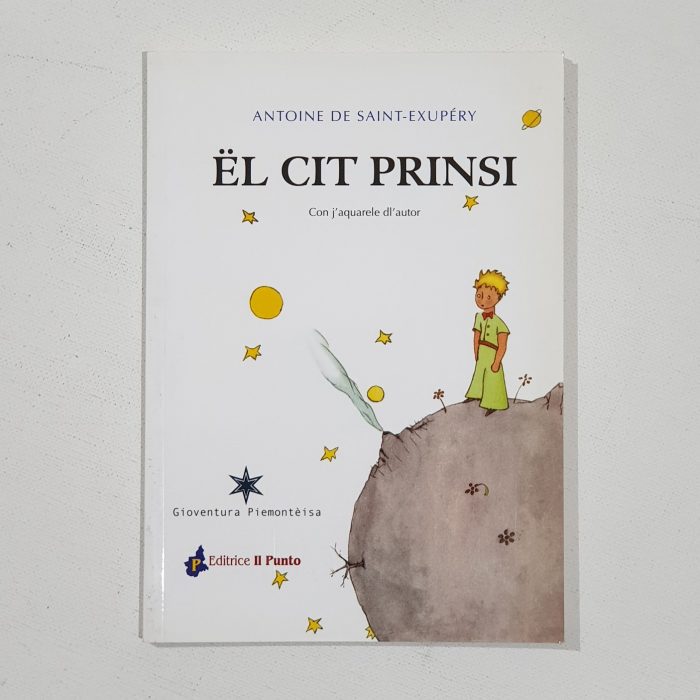
Ël Cit Prinsi — in piedmontese / piemontèis / lenga piemontèisa / piemontese, a Romance language spoken by some 700,000 people mostly in Piedmont, northwestern region of Italy. It is geographically and linguistically included in the Gallo-Italic languages group of Northern Italy (with Lombard, Emiliano-Romagnolo and Ligurian). It is part of the wider western group of Romance languages, which also includes French, Occitan, and Catalan. It is spoken in Piedmont (except est on Sesia river in the eastern part), Liguria (northwest part near Savona) and Lombardy (a very small part in Lomellina in the Pavia province).
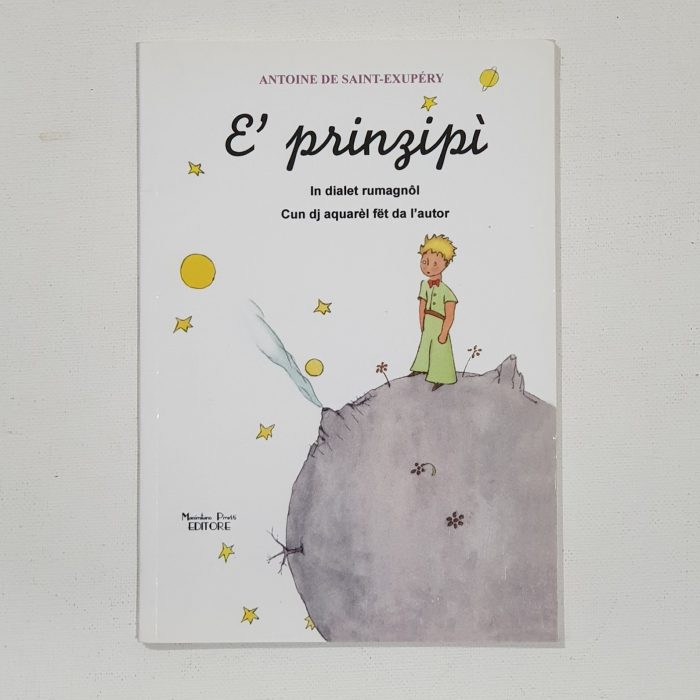
E’ Prinzipì — in Emiliân-Rumagnōl / Emiliano-Romagnolo, which is a Gallo-Italic language spoken in the Northern Italian region of Emilia-Romagna, parts of Lombardy, Umbria, Marche, Liguria, Piedmont, Veneto, Tuscany, and San Marino.
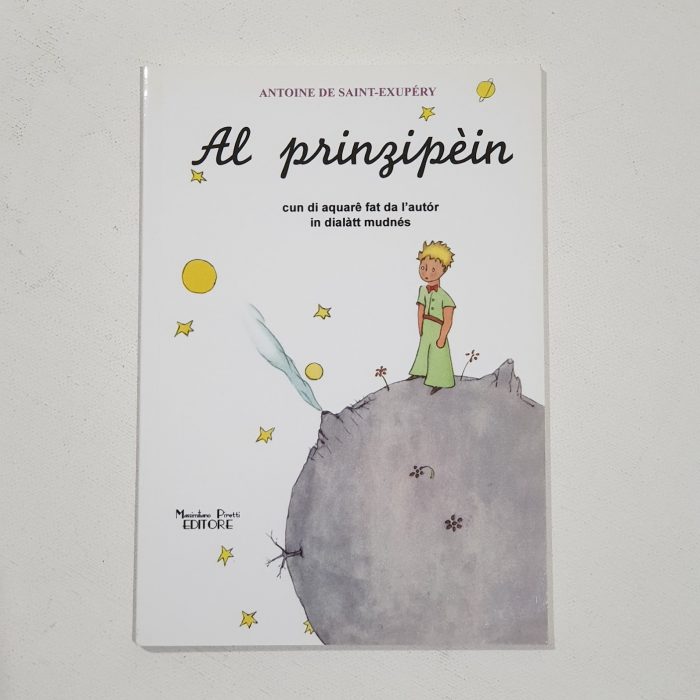
Al Prinzipèin — in Emilian-Modenese dialect spoken in the Province of Modena.
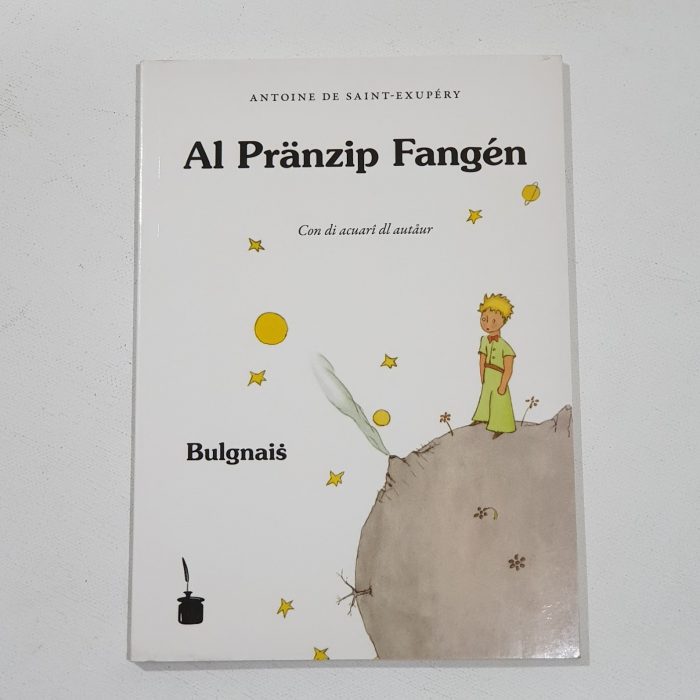
Al Pränzip Fangén — in Emilian-Bolognese dialect spoken in the Metropolitan City of Bologna and in around Castelfranco Emilia, Modena.
Regional — Italo-Dalmatian
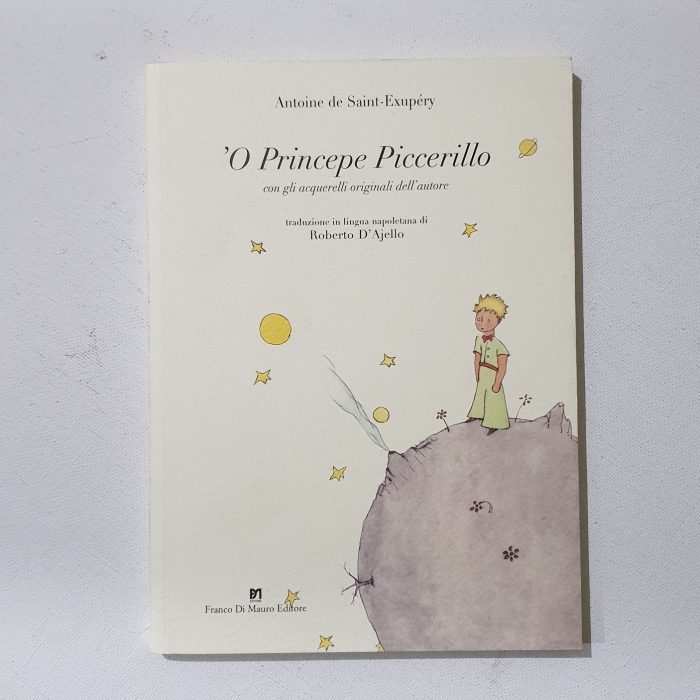
‘O Princepe Piccerillo — in Neapolitan / ‘O Napulitano / Napoletano, which is a Romance language of the Italo-Dalmatian group spoken across much of southern Italy, except for southern Calabria, southern Apulia, and Sicily, as well as in a small part of central Italy (the province of Ascoli Piceno in the Marche). It is not named specifically after the city of Naples, but rather the homonymous Kingdom that once covered most of the area, and of which the city was the capital.
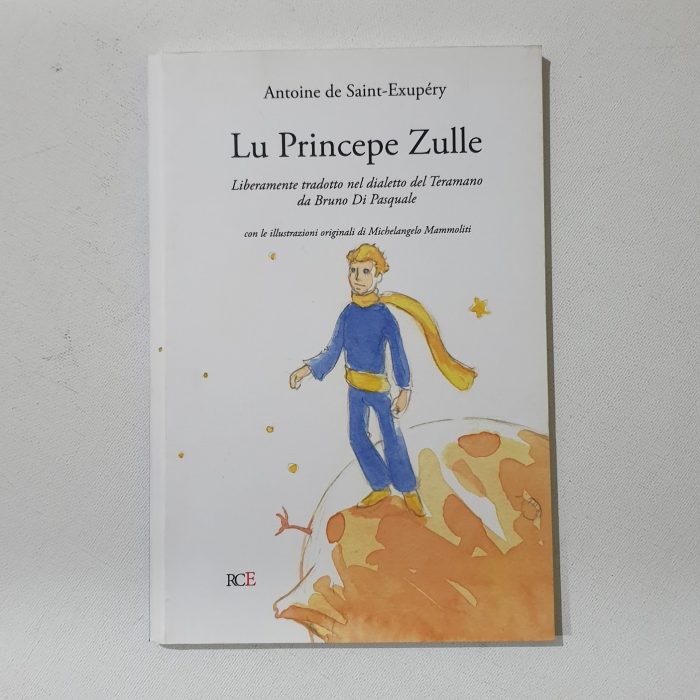
Lu Princepe Zulle — in Teramano, a dialect of Neapolitan language spoken in the province of Teramo; northern province of Pescara: Atri, Abruzzo.
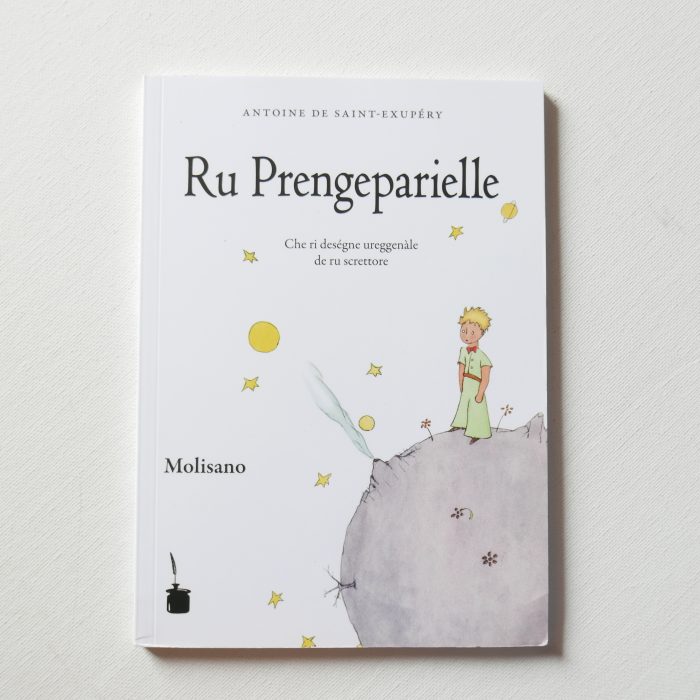
Ru Prengeparielle — in Molisano, a dialect of the Neapolitan language spoken in the Molise region of Southern Italy.
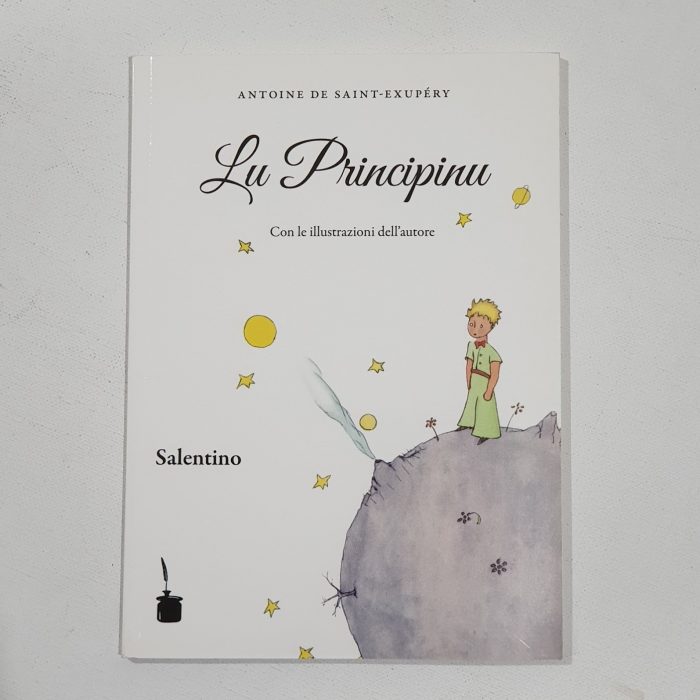
Lu Principinu — in Salentino, a dialect of the Sicilian language spoken in the Salento region (province of Lecce, almost all the province of Brindisi, and part of the province of Taranto).
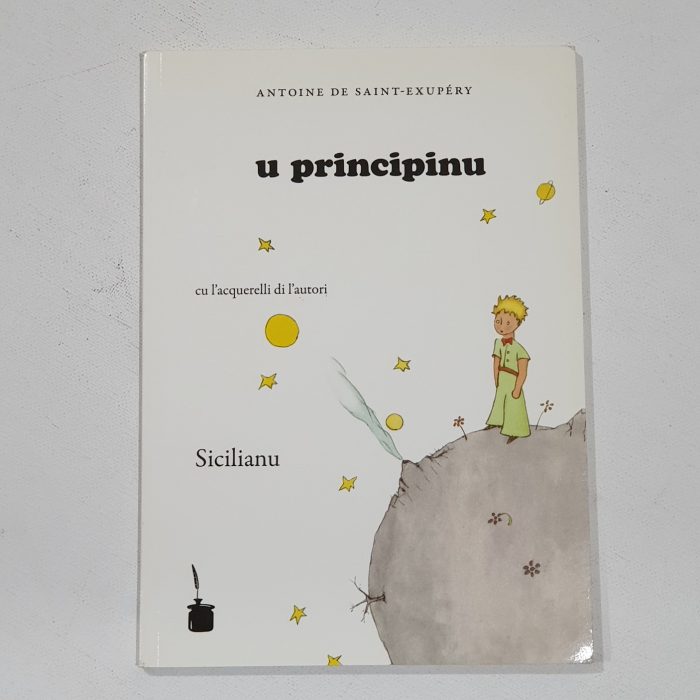
U Principinu — in Sicilian, which is a Romance language spoken on the island of Sicily and its satellite islands. It is also spoken in southern Calabria (where it is called Southern Calabro), specifically in the Province of Reggio Calabria, whose dialect is viewed as being part of the continuum of the Sicilian language.
Regional — Non Romance
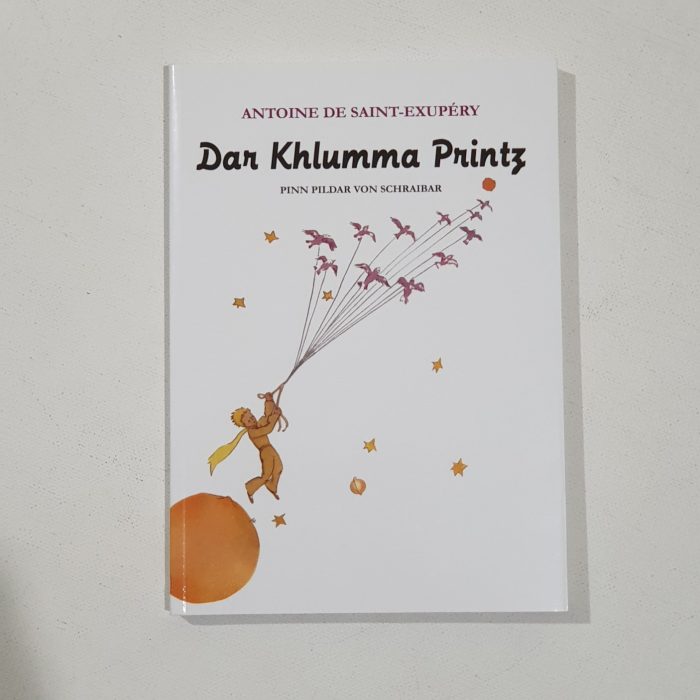
Dar Khlumma Printz — in Cimbrian. Cimbrian refers to any of several local Upper German varieties spoken in northeastern Italy. The speakers of the language are known as Zimbern. Cimbrian is a Germanic language related to Bavarian most probably deriving from a Southern Bavarian dialect (although a Lombardic origin cannot be ruled out). Its many essential differences in grammar as well as in vocabulary and pronunciation make it practically unintelligible for people speaking Standard German or Bavarian.

